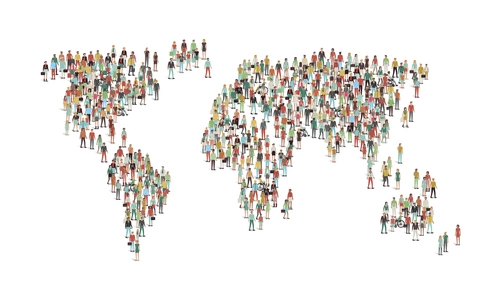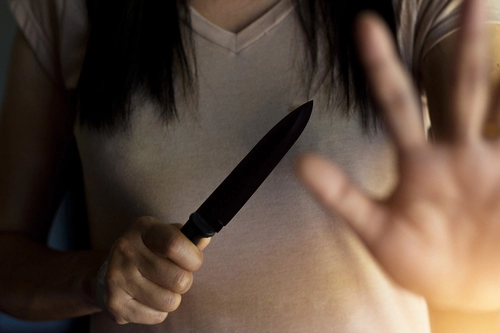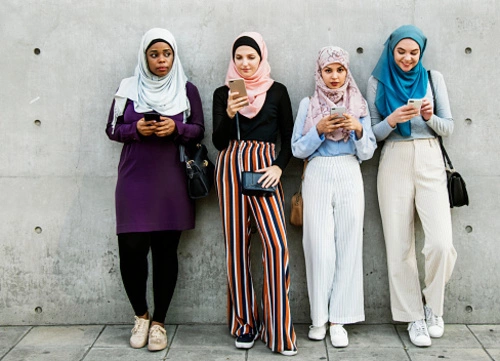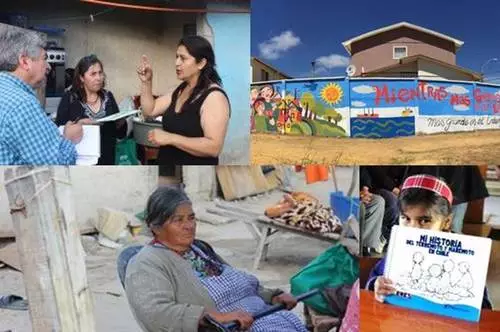1. Select a discrete app icon.

notes
Why Domestic Violence Shelters are a Secret in Iraq
Here, survivors and advocates alike live in fear
- Sep 11, 2019

Despite the tireless efforts of domestic violence advocates to save survivors, change the laws, shift our mindset out of one of toxic masculinity and teach future generations about boundaries and respect, the movement to end violence against women has a way to go. Nearly 38 percentof murders of women around the globe are committed by their male partners—the men who were supposed to love and protect them. On top of that, one thirdof women worldwide have experienced violence by an intimate partner.
But at least here in the U.S., help is a phone call away. Calling a hotline means connecting with a trained domestic violence advocate—someone who can instantly offer support, resources, shelter if need be, legal options, safety planning, counseling.
We also have the Violence Against Women Act, or VAWA—the House passed its reauthorization this past April, but it still awaits its day in the Senate. VAWA protects programs across the country that are actively trying to end not only domestic violence but also sexual assault and dating violence as well as provides protections for undocumented immigrants, Native Americans and LGBTQ+ individuals.
Half of All Married Women Here are Being Abused
We’re on the right track, but in other countries, it is far more difficult for survivors to find an ally. In Iraq, where ISIS is still a looming threat, women also fear the violence happening in their own homes. Nearly half of the female population over age 10 have been victims of violence by a family member or spouse, according to the United Nations Population Fund. A quarter of them are married before the age of 18—5 percent before age 15—and nearly 60 percent of girls 19 and under in at least one region of Iraq are subject to female genital mutilation.
Despite these statistics, the Iraq government doesn’t seem all that concerned, regularly raiding what are referred to as “safe houses” in Iraq, their version of a domestic violence shelter, and returning the women and girls there to their families, imprisoning the advocates who dared to help them.
Donate and change a life
Your support gives hope and help to victims of domestic violence every day.
There are very few shelters in the country, though how many underground-railroad-type situations are occurring is unknown. Yanar Mohammad runs 10 of these type of places—secret safe houses for women and girls to escape to who have been abused or at risk of being killed by their family or spouse. Mohammad is the president of the Organization of Women’s Freedom in Iraq. In an interview with BBC, she explained, not surprisingly, that what she does is very dangerous.
“The family would kill before letting you get to their daughters,” she says. And the government refuses to make the efforts of advocates like Mohammad’s legal, putting her at constant risk.
No Laws to Protect Them
At the time of the interview, 52 women were finding refuge in Mohammad’s shelters, a fraction of the survivors believed to need help. (Compare this to the 40,000-plus adults and children who sought shelter in the U.S. on one day, according to an annual census count by the National Network to End Domestic Violence.) In one year, Mohammad helped 1,000 women escape abuse, at least temporarily.
Lawyer and activist Alia Husseini told The Arab Weekly that prosecuting domestic violence in Iraq is “usually unsuccessful … because of deep-rooted customs and traditions in our patriarchal society where women are denied the capacity to claim their rights and fear scandal and shame.”
If lucky, Iraqi women may be granted a divorce. Many choose suicide over returning to their family. International human rights treaties have demanded for years that Iraq better protect victims of domestic violence, but some members of parliament argue such laws would go against Islamic principles.
Still, Mohammad has faith when she sees the women in her shelter who have escaped.
“I’m hopeful that these women can change Iraq.”
ISIS Kidnaps, Sells Women and Children
If their own family isn’t trying to kill them, Iraq women are also at risk of being kidnapped by ISIS and forcing them into sexual slavery. Thousands of women have been captured by the terrorist group since its invasion into Iraq in 2014 and are still being sold today in private markets, according to The Office for Yazidi Abductees' Affairs.
MADRE, an international human rights organization based out of New York, partners with Mohammad’s organization to run a legitimate underground railroad to provide humanitarian aid, safe passage and shelter to women and children who are being held captive by ISIS. You can learn how to get involved and support their efforts here.
Looking for someone to speak with? Enter your location to find phone numbers for domestic violence experts in your area.
Have a question about domestic violence? Type your question below to find answers.






